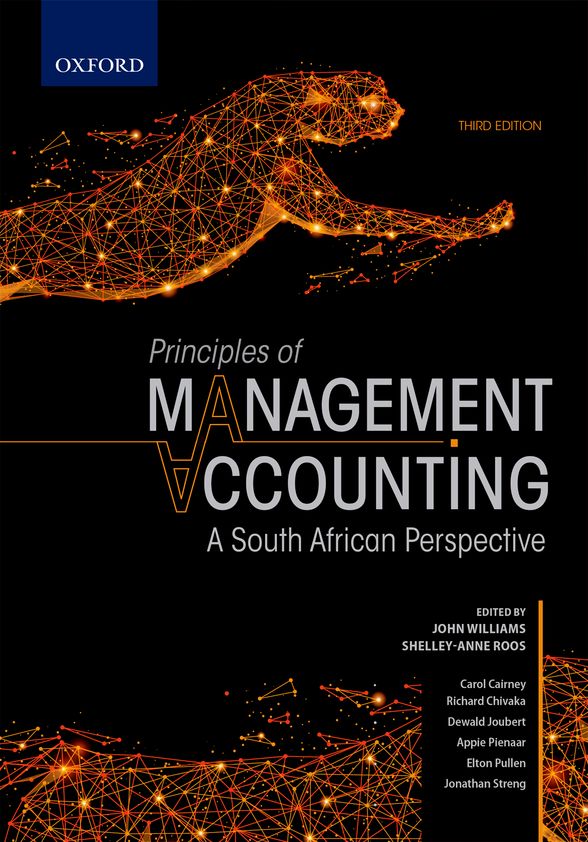Principles of Management Accounting: A South African Perspective 3e is an accessible principles-and concepts-based text aimed at undergraduate students of management accounting at universities and universities of technology. Sections integrating topics from groups of preceding chapters provide advanced reading for Honours and MBA level students.
The book covers the management accounting syllabus of the South African Institute of Chartered Accountants (SAICA). In doing so, it also covers most aspects of the syllabi of the relevant papers of the Chartered Institute of Management Accountants (CIMA) and the Association of Chartered Accountants (ACCA).
Features
- 'Caselets' at the beginning of each chapter provide preliminary framing or contextualisation of the content to follow.
- Each chapter has integrated workings, as well as short and long questions that provide students the opportunity to check their progress.
- The book has a South African focus, using real-life South African examples and case studies to illustrate the theory.
- Ethical dilemma sections discussing issues such as what to do in the case that management is unsure of whether the company's cost system allocates overheads with a sufficient degree of accuracy, and how to handle the associated consequences such as the possible overcharging of competitors or consumers.
- New examples such as the use of SAA to discuss cost-volume-profit relationships.
- Reference
to
use of digital developments in management accounting such as predictive analysis in costing and other strategic uses as well as references to the use of Excel in management accounting.
- Updated according to the ACCA and CIM A s yllabi, wh
1Introduction to management accounting
2Cost classification
3Cost estimation
4Cost-volume-profit relationships
5Absorption versus variable costing
6Overhead allocation
7Job costing
8Process costing
9Joint and by-product costing
10Relevant information for decision-making
11Decision-making under operational constraints
12Budgets, planning and control
13Standard costing
14Performance management
15Transfer pricing
16Contemporary management accounting concepts
17Competitive advantage
